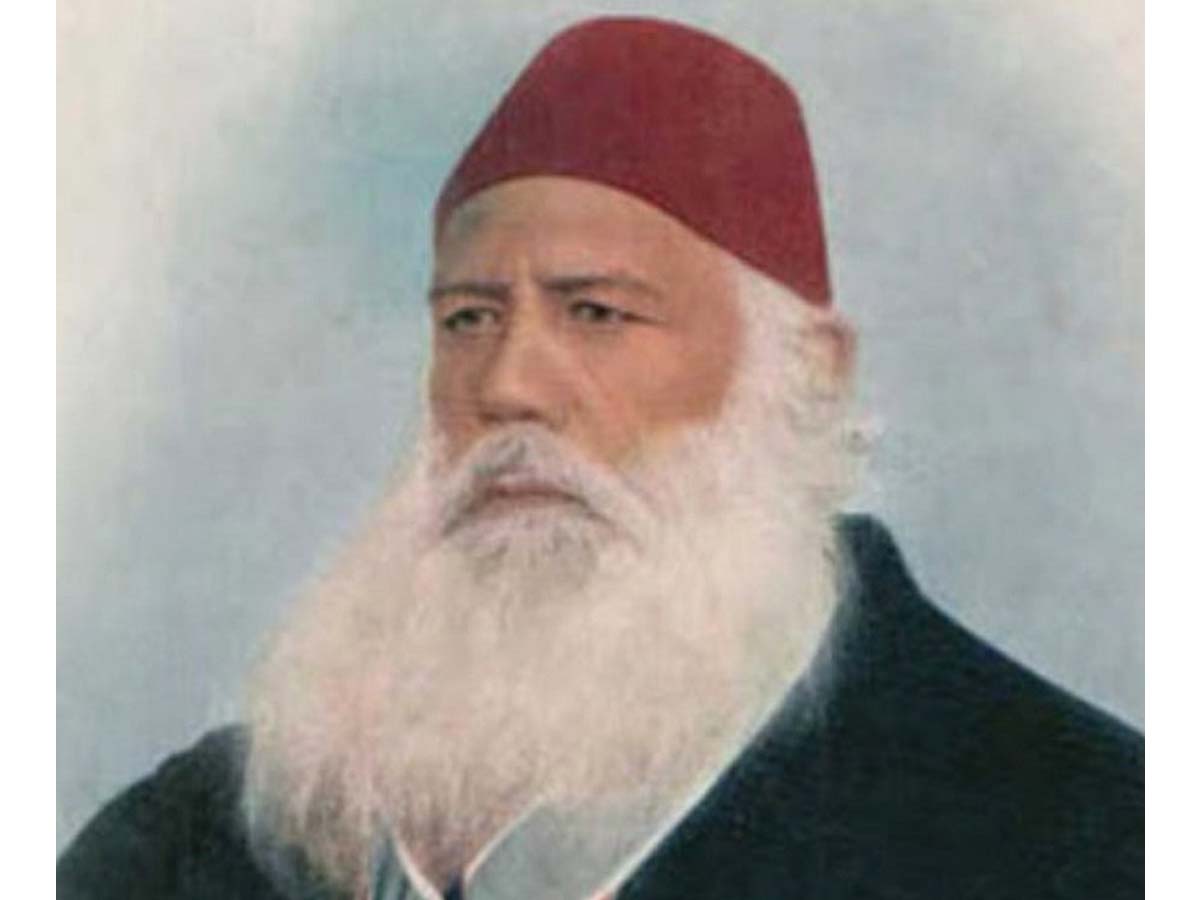
Notwithstanding the widespread admiration for propagating modern education among Muslims and bringing about fundamental and multiple reforms and occasional renunciation for siding with the British too often, Sir Syed(1817-1897) projected as the voice of patriarchy as he did very little for the most unprivileged and neglected group–women and strengthened gender discrimination.
His 207th birth anniversary coincides with the ushering of an unheard era of women’s empowerment as the women’s reservation in the legislature has become a reality. It is time to see whether he stood for women’s social, educational, cultural, and religious emancipation. Against this backdrop, one has to analyze his writings and actions that prompted David Lelvyeld to describe him “hardly as a man of modern ideas that we usually take him for.”
Despite showing his marked inclination for liberal and democratic values and rational outlook that culminated in setting up the MAO College in 1877 at Aligarh, Sir Syed initially ‘idolized a disorganized tutor-based home education, and he wrote,” female education means much more than teaching several women and imparting rudimentary knowledge of arithmetic, history, geography and the like to them. It refers to a process of training that enables them to fulfill the duties of family life.” He discussed the issue of female education many times and made it clear that it must not be confined to reading, writing, and learning simple mathematics; it entailed what a woman needs for a happy domestic life. For him, education seriously jeopardized women’s ultimate purpose of life–marriage. He argues, “It is my cherished desire that exemplary and good quality education be imparted to women, but in the present pitiable conditions, getting girls educated is not prudent. They cannot live without marriage and will not get educated husbands.
Moreover, if they tie the knot with uneducated and uncivilized men, their lives will be filled with agony and misery. It is intriguing to learn that Sir Syed, an avowed enemy of traditional beliefs and social convictions, threw his weight behind gender segregation. He frequently pitched for purdah (veil)- centric home education for women. The British government opened coeducation schools and exclusive schools for girls. Sir Syed and Bhartendu Harish Chandra (1850- 1885), two prominent intellectuals of north India, vehemently criticized the move. In his trail-blazing book, Causes of Indian Revolt (1858), he mentioned that the opening of girls and coeducation was one of the major causes of public unrest.
People, irrespective of their faith, found female education and slackening the bond of gender segregation despicable and resisted the propagation of education among women.
Similar views were also expressed by Bharatendu Harishchander, who appeared before the Royal Education Commission headed by W W Hunter. Their views betray discernible traces of feudal mindset and gender discrimination.
Despite having astigmatic views on female education, Sir Syed curiously idolized women’s empowerment and fulminated against all that closed off the possibilities of progress and self-fulfilment. Sir Syed, the first Muslim public intellectual, though hardly known beyond being the founder of Aligarh Muslim University, started his multilingual newspaper, The Aligarh Institute Gazette, and launched a vociferous campaign against female infanticide, polygamy, child marriage, sati, segregation of widows, and poverty– impelled marriages of young girls with older men. Mary Carpenter (1807-1877), a British philanthropist and proponent of female education, visited India in 1866 to spread the message that women should be involved in all sorts of activities. She made four visits to India between 1866 and 1876; when she first made it to India, Sir Syed welcomed her by writing an editorial. Sir Syed visited London and found her commitment to getting repressed Indian women into public life by making a case for providing modern education to them left Sir Syed greatly impressed.
Sir Syed’s journey to England (1869-1870), aptly described as a voyage to modernism, terrifically upends the tales of so-called lascivious and indiscreet flirtation of European ladies told by some Muslim travellers who made it to Europe in the eighteenth and nineteenth centuries. Their travelogues are replete with salacious observations about British and French women with a voyeuristic male gaze, and the revealing attires strike them. One such traveller, Yusuf Khan Kambalposh, reached Paris in 1837 and observed: “Their silken apparel lay their bodies bare, especially their privy parts. Their lustful gestures get applause from people who watch them lasciviously.” One can hardly find any appreciation of empowerment, education, equality and freedom that European ladies enjoyed at that time and was unthinkable in Muslim countries. Sir Syed’s travelogue skilfully upends the dominant and oft-repeated portrayal of European women. It presented a gripping narrative of women’s invaluable contribution to their country’s collective life.
On his way to London, Sir Syed stopped in Paris and was never distracted by the “provocatively revealing dress” and seducing attitude .” To buy gloves and caps, he entered a shop where a polyglot French girl pleasantly surprised him with his dignified manners. Sir Syed was in awe of her when he realized she had equal felicity in English, German, French and Italian. In London, women’s civility, a quest for knowledge, and dignified behaviour deeply moved Sir Syed. Frequent interactions with European ladies prompted Sir Syed to recant his views on female education. He realized that women could be a repository of knowledge. His travelogue is replete with an appreciation of women’s emancipation, gender equality, and their centrality to human progress. Sir Syed was the first Muslim traveller who profusely admired the freedom given to European women. He seems convinced that the decline of Muslims owed much to the non-acceptance of female education. Still, he hardly renounced the disorganized plan for women’s education that brought nothing but denial and misery.
Prof Shafey Kidwai is associated with the Aligarh Muslim University. He is a bilingual critic and also the author of the book Sir Syed Ahmad Khan; Reason, religion and Nation (Routledge).



